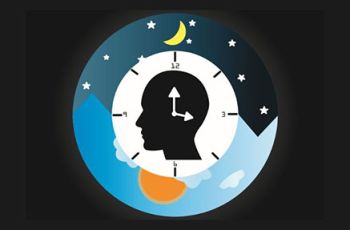
Online
Janette Rodrigues, administrative director, Office of Integrative Medicine & Health, jrodrigues [at] gwu [dot] edu (jrodrigues[at]gwu[dot]edu)
A good night of sleep should have you feeling well-rested the next day. Research suggests that almost a third of us drag ourselves out of bed in the morning without enough good-quality sleep, which means we could feel better during the day.
If you feel tired upon waking, or throughout the day, you may be experiencing underlying issues that are impacting your night’s rest. Any number of things can contribute to poor sleep quality including poor sleep hygiene, stress, sleep apnea or another primary sleep disorder, or another chronic health condition.
Learn more about this and how to have restorative sleep at the 7th Annual Patrick & Marguerite Sung Symposium: Sleep & Well-being. We will explore the following topics during a half-day event from 1 - 5 p.m. ET on Friday, March 8, 2024:
- "Sleep to Support Whole-person Well-being" by Vivek Jain, MD, associate professor of Medicine, director of the GW Sleep Disorders Center, GW School of Medicine & Health Sciences.
- "Sleep Disordered Breathing: Mechanisms, Consequences, & Amelioration" by Vsevolod Polotsky, MD, PhD, professor of Anesthesiology and Critical Care Medicine, professor of Pharmacology and Physiology (Secondary), Professor of Medicine (Third), GW School of Medicine & Health Sciences.
- "The Glymphatic System supports Whole-person Well-being while you Sleep" by Lauren M. Hablitz, PhD, assistant professor, Department of Neurology, University of Rochester Medical Center.
- "Personalizing Sleep Care for Well-being: Human Circadian Variations" by Liza H. Ashbrook, MD, associate professor, Neurology, University of California - San Francisco Weill Institute for Neurosciences.